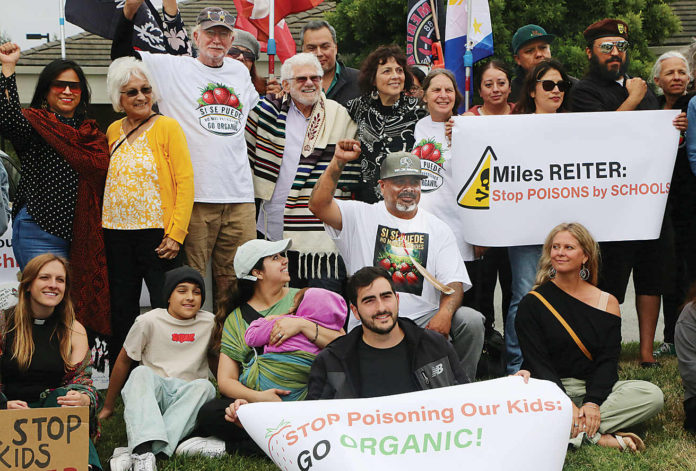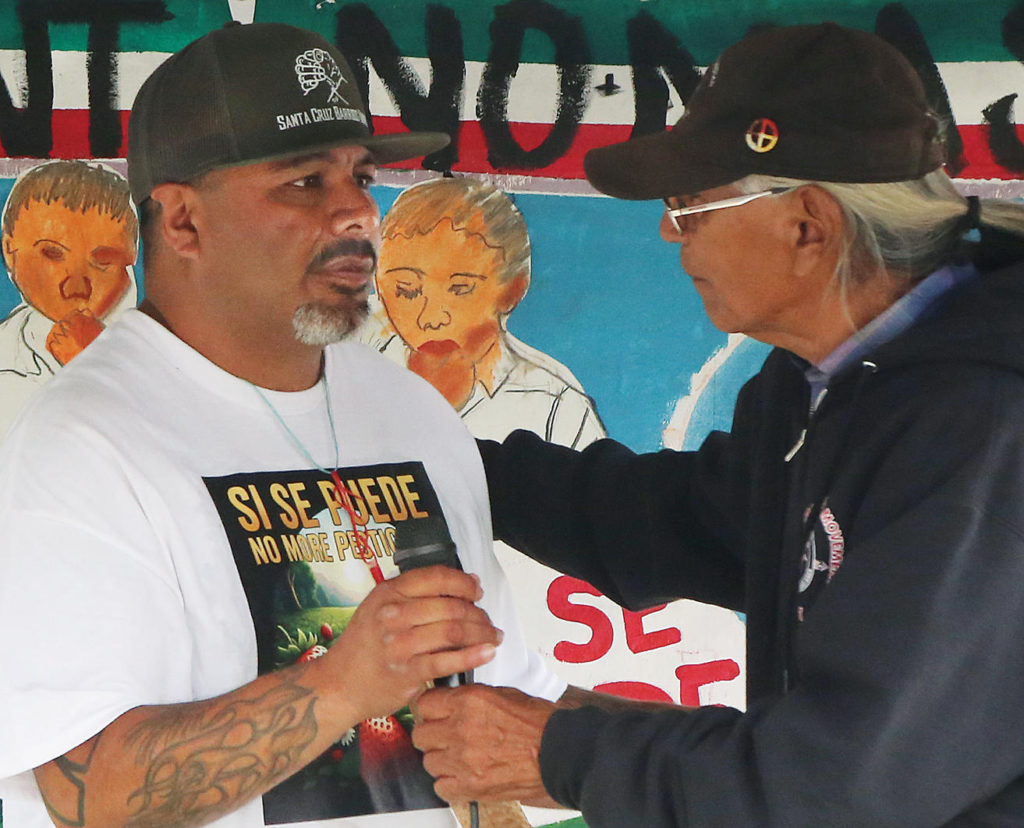
Watsonville activist Omar Dieguez and a group of community leaders announced a hunger strike and started the movement with a protest outside of Driscoll’s headquarters Tuesday in Watsonville.
About 50 people were protesting the use of toxic pesticides near homes and schools in Watsonville and the Pajaro Valley.
Dieguez announced that he began his fast on Sept. 1 and will continue for 30 days. He is being joined by several community leaders who will fast for various lengths of time.
Dieguez released a public statement to Driscoll’s and California Giant Berry owners, urging them to transition their fields near homes and schools to organic and stopping the use of toxic pesticides.
“Enough is enough,” the statement reads. “For too long, you have poisoned our community with toxic pesticides that harm our farmworkers, our immigrant and Indigenous families, our youth, and all of Pajaro Valley. You are contaminating our water, our land, our oceans, and the very air we breathe. This must stop now.”
Dieguez says in the statement that, as a young boy growing up near the fields, he acquired acute asthma.
“Many of my friends have suffered from cancers and other health problems that many of the same chemicals used in your berry fields are known to cause,” he says.

Dieguez says that the companies have the resources and capabilities to end pesticide use immediately and transition to safer practices.
“Impacts from pesticides go on for decades,” Gabe Medina, Pajaro Valley Unified School District board member, told the crowd. He spoke of family members who were sprayed “directly” while working area fields, and of cancer and strokes that have affected his family.
“This is what pesticides do to us: They impact us physically and mentally,” Medina said. He demanded proper screening of students at schools for added protection and spoke strongly of area leaders coming forward and standing up for what is right “and challenging corporations that see us as disposable units in order for them to make profits.”
Adam Scow of Campaign for Organic and Regenerative Agriculture, a grassroots organization of residents of the Monterey Bay, stated: “Local activists are coming together to put their bodies on the line in support of the movement to stop toxic pesticides. Our region is actually a leader in organic agriculture with nearly 20 percent of the Pajaro Valley being organic. So we need more of it in the right places.”
The specific fields near Pajaro Valley homes and schools are illustrated on a map released by the Campaign for Organic & Regenerative Agriculture, available at the website link here: farmworkerfamily.org/cora.
The Pajaronian has also reached out to California Giant Berry for a statement.











Good for Y’all. Ill be having a strawberry shake later.
“Dieguez says in the statement that, as a young boy growing up near the fields, he acquired acute asthma.”
It is unfortunate that the pesticides may have caused illness.
My siblings and I worked in those very fields as kids through our early teens. I grew up in Las Lomas, where fields surrounded our home and school and were regularly sprayed. Genetics, lifestyle, and environment are all factors. Thankfully, my parents and siblings are all in good health.
There are more pressing issues facing Watsonville. Alcoholism within the immigrant population is a bigger issue, kids being raised by social media is a bigger issue, overweight children are a bigger issue, broken homes are a bigger issue, and the lack of parenting kills is a bigger issue.
Look like RFK Jr. supporters…
How did you draw that conclusion, dalbert?